Post
A catch
Save a catch to start your fishing logbook. You will be able to to share it with the community if yo want!
A fishing trip
Post an ad to go fishing with other fishermen
Save a catch to start your fishing logbook. You will be able to to share it with the community if yo want!
Post an ad to go fishing with other fishermen
Share a thought, a question with the community
My favorite cities
×Keep your rods ready for Hornbeck in Vernon. The fishing forecast is currently 2.1. The most caught fishes here are the lahontan cutthroat trout, the bronze bream, the steelhead trout and the atlantic salmon. Come try the most famous fishing techniques like the gathering seafood by hand, support fishing for bass, deep-sea fishing or how to catch smelt with square net?.
Our fishing forecast of Hornbeck indicates the best time to go fishing in this city.
The Lahontan cutthroat trout
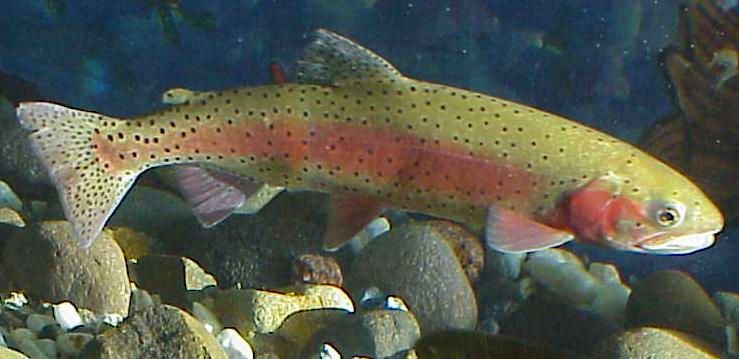
The Lahontan cutthroat trout belongs to the Salmonidae family. It can reach 1 m for 24 kg. It has a lifespan of less than 5 years. It breeds between February and July. The best time to catch it is between March and April. It is a quite large fish with a square tail to hunt prey and avoid predators. The coloring is green to greenish brown on the back, pale yellow with a pink lateral band on the sides and silver to white on the belly. Parr marks fade in mature fish. Spawning trout can be copper, red and orange, especially male. Large rounded spots, almost as black as ink, scatter little over the body, with less below the lateral line. Like other cutthroat trout, they have a distinct red to orange mark on their throats, but can be pale on lakes.
The Lahontan cutthroat trout is a famous fish you can catch in Hornbeck.The Bronze Bream
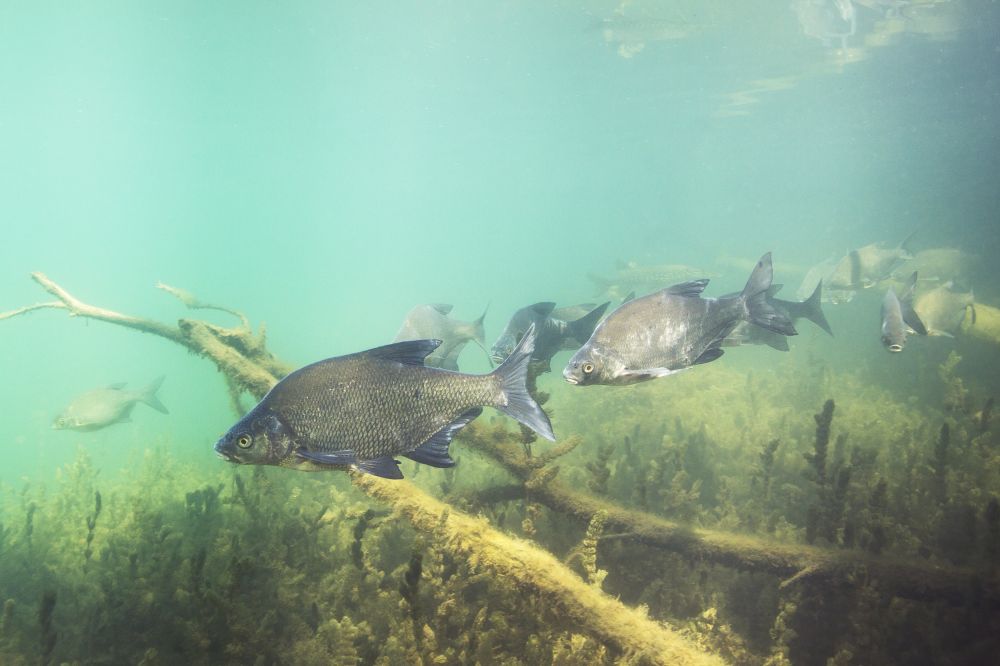
The Bronze bream belongs to the Cyprinidae Family. The current catch size varies between 30 and 50 cm, for a weight of 0.5 and 2.5 kg. Some individuals can reach a maximum height of 80 cm for a weight of 7 kg. It lives between 20 and 25 years. It reproduces between April and June and lay 100,000 to 300,000 eggs. The Bronze Bream can be fished all year round in 2nd category streams and is not hard to catch with the right bait. In Europe, there are 2 or 3 types of bream, 5 species and 2 subspecies. The Bronze bream has a very high and strong body flattened laterally. The bushy back, especially in older individuals, is characteristic of this fish. Its body is covered with large scales and mucus. The Bronze bream has a fairly small eye compared to the size of the muzzle. The mouth is small, oblique, barbless and protractile. The upper jaw protrudes beyond the lower jaw. Teeth are subject to seasonal replacement. The anal fin is very long and has 23-30 soft rays. On the other hand, the dorsal fin is short and inserted behind the pelvic fins. The caudal fin is very indented with the lower lobe longer than the upper lobe.
The Bronze Bream is a famous fish you can catch in Hornbeck.The Steelhead Trout
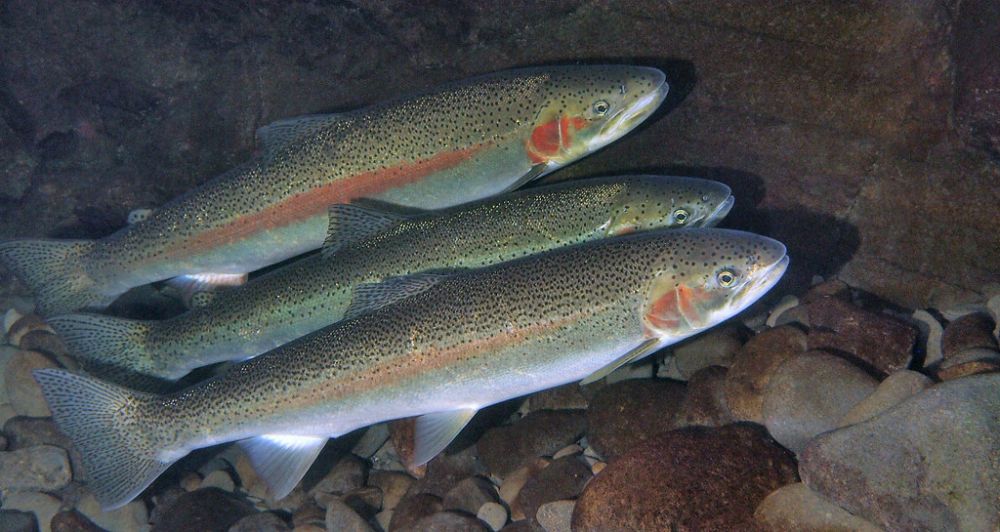
The Steelhead trout belongs to the Salmonidae family. Steelhead trout is a name given to the anadromous form of red-band trout (O. m. Gairdneri) or coastal rainbow trout (Oncorhynchus. M. irideus). Steelhead trout can weigh up to 26 kg and reach a length of 114 cm. He can live 11 years. It breeds from January to April. It is fished from the end of October to the month of November. Steelheads trout generally have a more refined shape and a silver or copper color when they reach adulthood, which is why they are called them.
The Steelhead Trout is a famous fish you can catch in Hornbeck.The Atlantic salmon
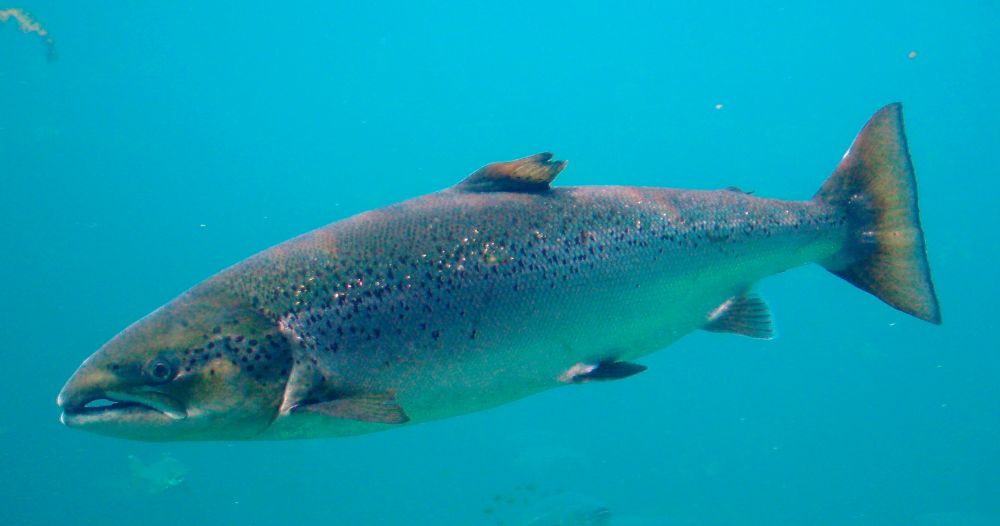
The Atlantic salmon belongs to the Salmonidae family. Atlantic salmon can measure up to 1.50 m in length and weigh up to 36 kg. The average longevity of Atlantic salmon is estimated at 10 years. It breeds from October to November. The female lays 1500 to 1800 eggs per kg of weight. It can be fished all year round. Atlantic salmon have an elongated and slender body. The anal fin has eight to eleven rays. The caudal is large, concave in adults and forked in young people. The head is small and flattened on top. The mouth is large (split to the posterior edge of the eye) and has strong teeth on the jaws, tongue and palate. The scales are large and visible. The lateral line is straight. Large black dots on a light background form X on the head, back and dorsal fin. The color varies from blue to blue-grey on the back, it is silvery on the sides. It varies during the spawning season, with adults turning bronze to dark brown. They lose their silvery livery when they enter fresh water. Males are marked with red dots on the sides. The young are marked with seven to eleven vertical fingerprints that they will lose when they enter the sea. As spawning approaches, the male's head will change: it will elongate, the lower jaw will develop and bend to form a hook (male "becard").
The Atlantic salmon is a famous fish you can catch in Hornbeck.The Arctic Grayling
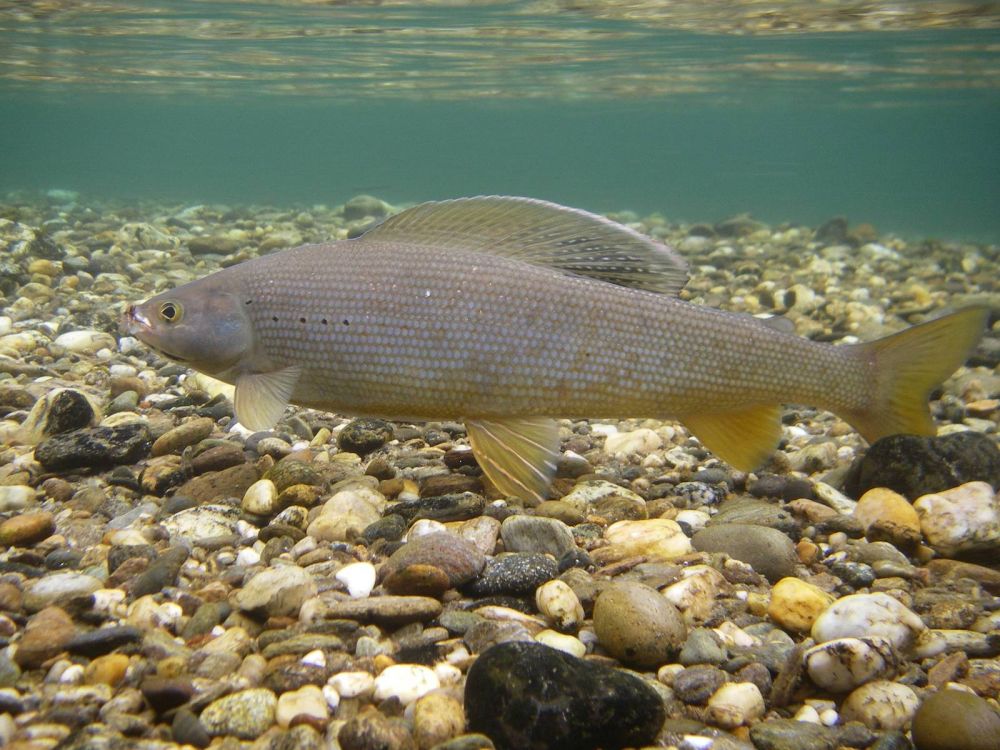
The Arctic Grayling belongs to the Salmonidae Family. The Arctic shade can reach a length of about 24 cm long and weighs about 3 kg. He can live to be 18 years old. It breeds in the spring and lays thousands of eggs. It can be fished all year round. Coloring may vary depending on the location. The dorsal fin is usually bordered red and dotted with large iridescent red, turquoise, purple or purple spots and marks. Back marks are more evident on the large shadows. The back of the Arctic shadow is generally dark. The sides can be in black, silver, gold, or blue. Gold markings sometimes form a border between the hips and the belly, while pelvic fins can be orange, red or pink. The sides and head can be freckles with black spots. The eye of the iris is often the color of gold.
The Arctic Grayling is a famous fish you can catch in Hornbeck.Our fishing forecast of Hornbeck indicates the best time to go fishing in this city.
Our fishing forecast of Hornbeck indicates the best time to go fishing in this city.
Our fishing forecast of Hornbeck indicates the best time to go fishing in this city.
